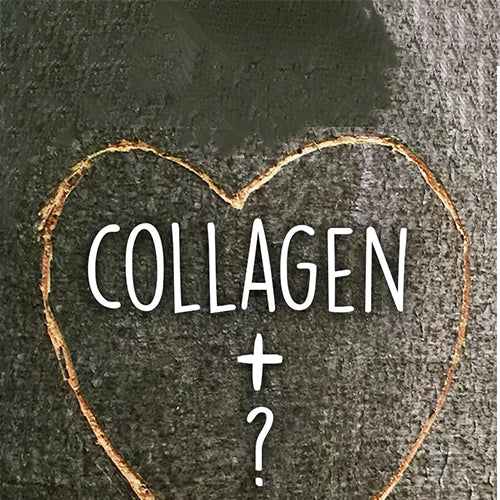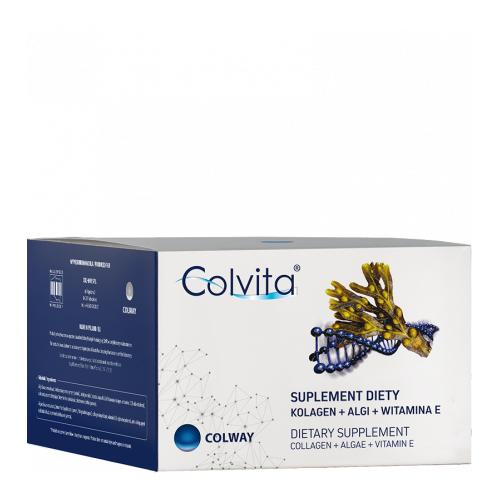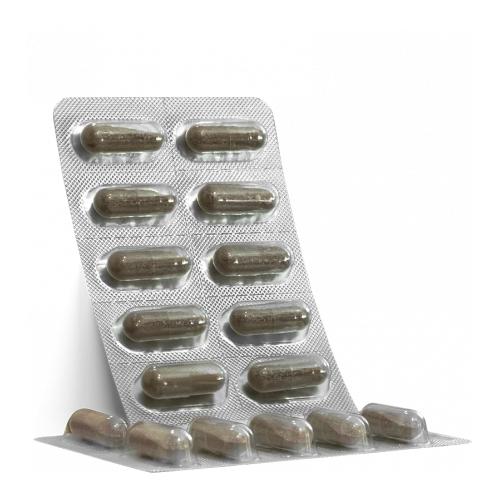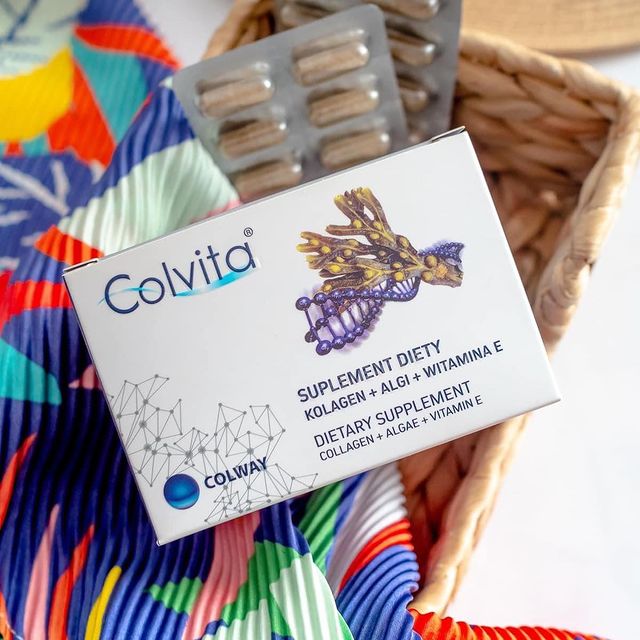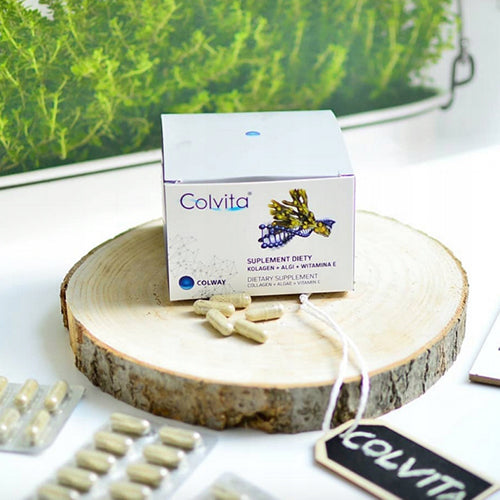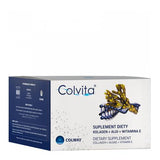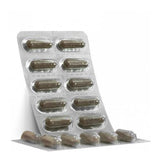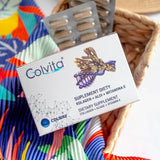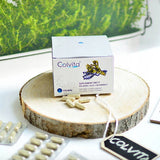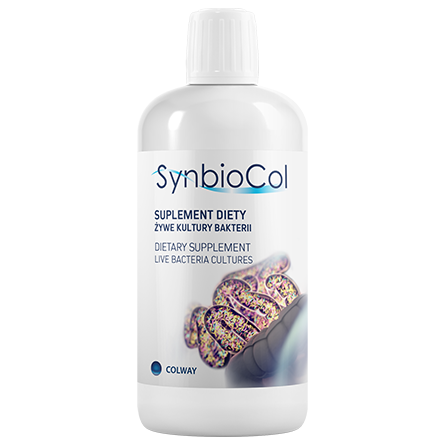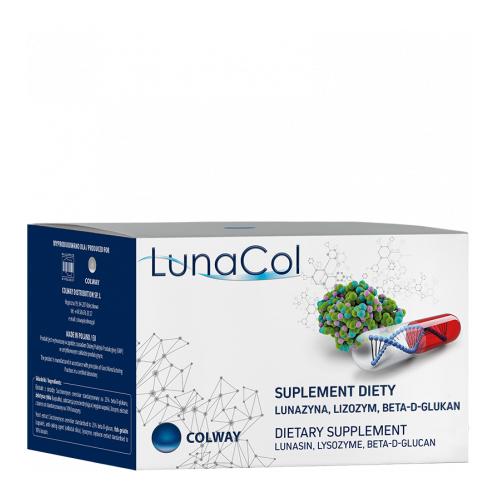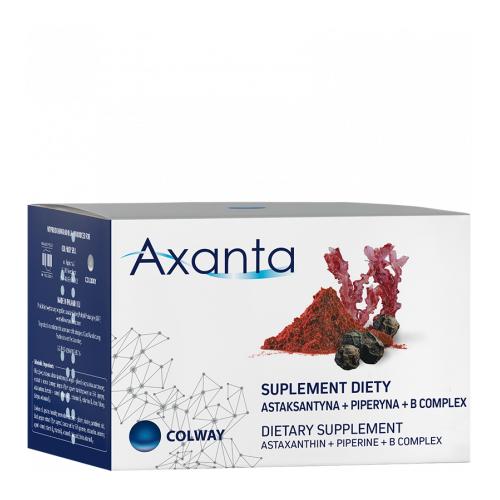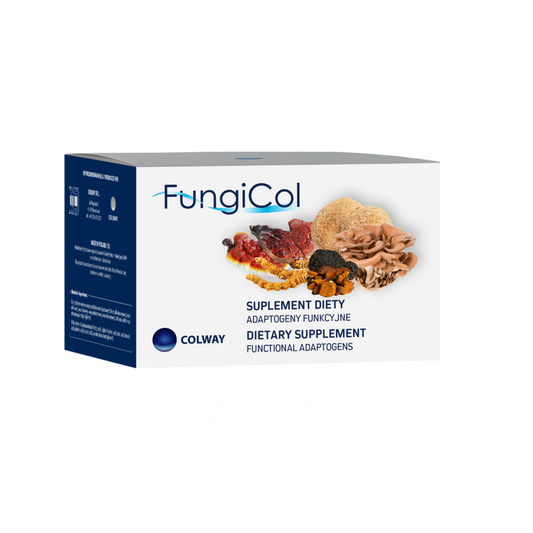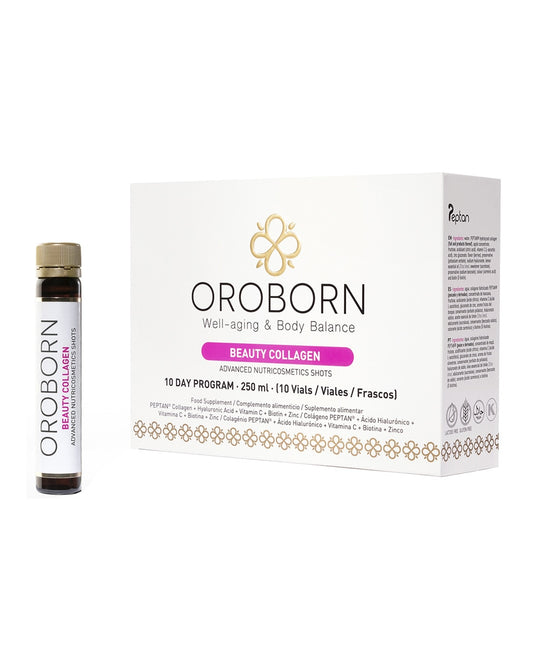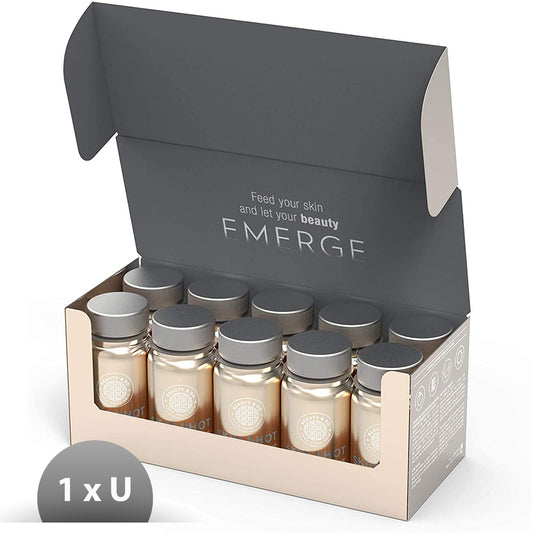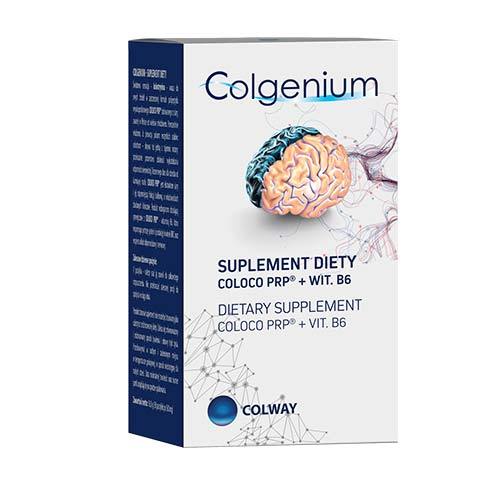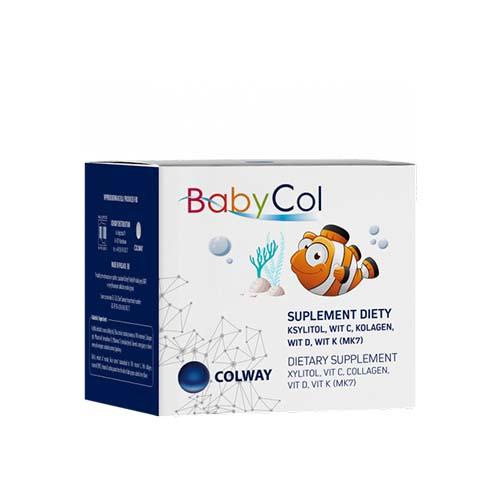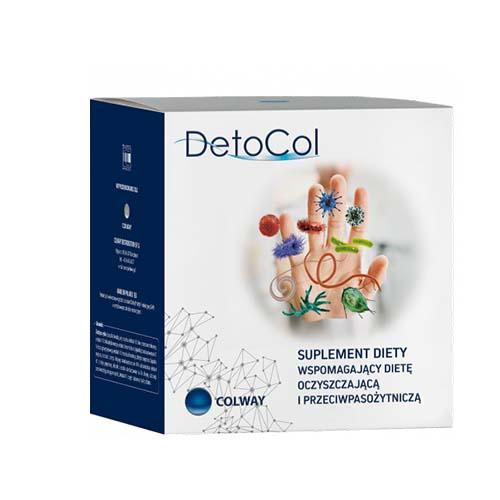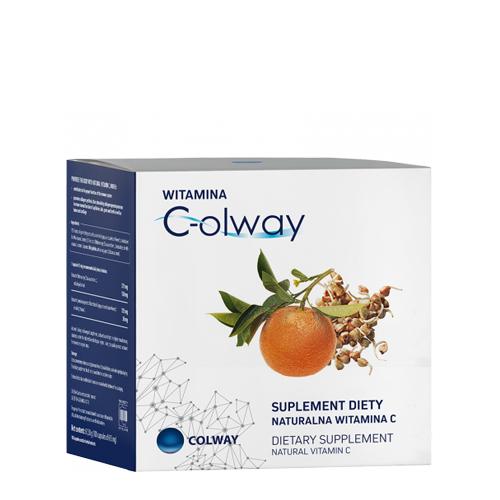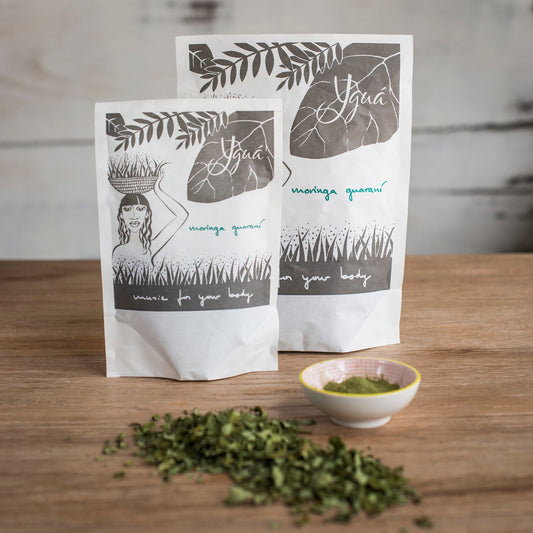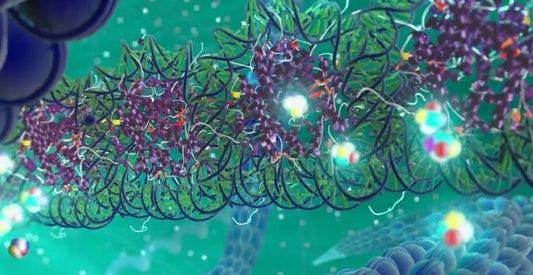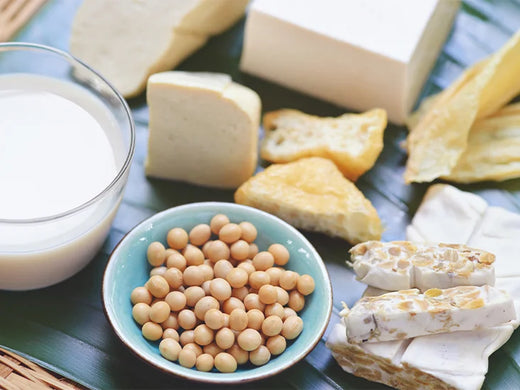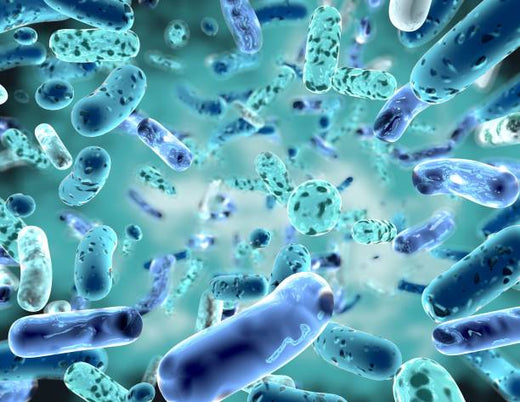If you're reading this, you're probably already quite familiar with collagen, the most abundant protein in the body, which is responsible for the health of your skin, nails, bones, joints, and other connective tissues.
The thing is, our current diet doesn't provide much collagen (if any), and our ability to produce it diminishes as we age. That's why wellness warriors have been incorporating collagen supplements, ranging from collagen capsules to bone broth (which contains collagen), to supplements and teas. Supplement fans rave about extra protein for everything from boosting your digestive health to keeping your joints in tip-top shape to working some skin-smoothing magic, and the trend continues to grow.
Adding collagen alone to your routine can improve your health in a number of ways, but it turns out that it can do its job even better when combined with certain nutrients. Here are six of collagen's best nutritional friends; Keep them in mind the next time you prepare a protein-rich shake or take your daily supplement.
1. Vitamin A
To make collagen, our bodies use certain amino acids, along with vitamins, minerals like vitamin A, vitamin C, and copper. . TTaking collagen supplements along with the vitamins our bodies use to naturally produce it is called a 'collagen double whammy'. Vitamin A, for example, not only aids in collagen production, but also supports immune function, vision, and healthy skin. Talk about a winner!
You'll find vitamin A in foods like sweet potatoes, kale, berries, and organ meats, so try adding kale or berries to your collagen smoothies! If you opt for a supplement to take along with your collagen, we recommend beta-carotene, which our bodies can convert to vitamin A as needed.
2. Vitamin C
Like vitamin A, vitamin C supports collagen synthesis in the body, so combining collagen with vitamin C-rich foods or a vitamin C supplement is a win-win. In fact, a study published in the International Journal of Cosmetic Science found that vitamin c boosts the youth-promoting powers of collagen to support an even, glowing and supple complexion.
Vitamin C is already added to many collagen supplement formulas (such as Reserveage Collagen Replenish, but you can also take your collagen along with a vitamin C supplement or C-packed foods like citrus, bell peppers, broccoli, or strawberries to reap the benefits.
3. Five
Zinc is another molecule necessary for the synthesis of collagen. The problem is that older people and anyone under a lot of stress (which is too much for us) tend to have low mineral levels.
You can find zinc in foods like oysters, beef, pumpkin seeds, spinach, organ meats, tahini, sardines, brown rice, wheat germ, and tempeh. If these foods are not common in your diet, consider taking a multivitamin that contains zinc along with your collagen supplement.
4. L-Arginine
The amino acid supports the normal build-up of collagen in the body and may be especially helpful for the collagen in our skin. An article published in The Journal of Nutrition suggests that the collagen synthesis required for wound healing depends on proper nutrition, and in particular , from an adequate intake of arginine.
Arginine is also known for its ability to increase the production of nitric oxide, a chemical that relaxes blood vessels to increase blood flow and carry more oxygen, protein, and other nutrients to our heart, brain, and muscles. This increased flow it also supports the production of collagen, because the better the blood flow, the better and faster the body can create new cells.
Arginine can be found in free-range eggs, dairy products, grass-fed beef, pasture-raised poultry, organ meats, wild-caught fish, and various types of nuts and seeds
5. Whey Protein Powder
The downside to collagen protein, though minor, is that unlike hemp and soy whey protein, collagen is not a "complete" protein, meaning it does not contain all nine of the 20 essential amino acids that our The body needs it to build protein and function. Collagen only contains eight of the nine essential amino acids. Furthermore, the levels of these amino acids in collagen are not as balanced as in protein supplements made from complete proteins.
This means that collagen protein is not ideal for optimal muscle growth and recovery after exercise, although its particular ratio of amino acids has unique benefits. Collagen has a high concentration of glycine, proline, hydroxyproline, and arginine.
According to a study published in The Journal of Clinical Endocrinology & Metabolism , glycine combines with two other amino acids in the body to create an antioxidant called glutathione , and antioxidants have been shown to support healthy skin by fighting free radicals. damage and oxidative stress.
To reap the benefits of collagen and To give your body the amino acids it needs after a workout, we recommend combining it with < whey protein.
With that being said, collagen protein is better than any protein supplement when it comes to building muscle. A study published in the British Journal of Nutrition found that when older men with wasting muscle mass took collagen peptides, a type of easily digestible protein, while following a strength-training program, they built more muscle mass and lost more fat. than those who took a placebo.
6. Hyaluronic Acid and Magnesium
Hyaluronic acid>is found along with collagen in the connective tissues of your body and helps bind collagen with another protein, elastin, which gives your skin elasticity. Since hyaluronic acid also has moisturizing properties, its lack can lead to dull, dry and lifeless skin.
Since collagen and hyaluronic acid work together to keep skin youthful, we recommend combining collagen with a hyaluronic acid or magnesium supplement, found in spinach, almonds, dark chocolate, avocado, and seaweed, and it has been shown to stimulate the production of hyaluronic acid. If you prefer to use a collagen supplement with magnesium, we recommend Colvite.



















































































































